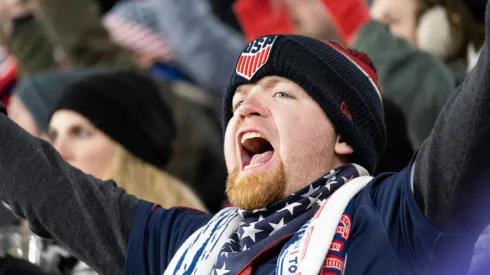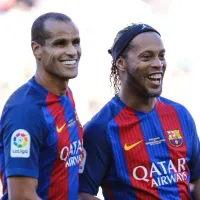So, the Netherlands knocked the USA out of the World Cup group stage, but the party isn’t over for American soccer fans. We still have much to celebrate.
We’ve got the joy of watching the remaining superstars and rising stars battle it out on the field. And who doesn’t love the multicultural pageantry of fans, wrapped in all manner of feathers, face paint, and crowns, as they chant, drum, and cheer? Not to mention the balm of international pluralism on display around the globe, all too rare in our polarized world.
The power of fandom
But more important to soccer fans living on U.S. soil is this: In a country where American football and basketball usually reign supreme, until the last whistle blows on December 18, world soccer holds the spotlight. And you, dear soccer fan, hold the power.
What power, you ask? The power of fandom.
Five years ago, we set out on a quest to understand how sports fandom operates, the results of which appear in our new book Fans Have More Friends.
What drives a person to wake up at 5 am on a workday to watch a game contested halfway round the world? Team loyalty? Maybe. Passion for the game? To a degree. Connection to other fans? Absolutely.
The number one driver of fandom is belonging. It is every fan’s incentive to engage.
What the research shows
According to our research, sports fandom operates as a social superconductor, allowing fans to make meaningful connections and deepen existing bonds with others. These connections reach across team loyalties and social categories such as age, race, nationality, class, religion, and gender.
Nowhere do we see this more clearly than among world soccer fans. Put a soccer fan in any taxicab in Sao Paulo, St Louis, or Stockholm and one mention of the name Leo Messi will spark a passionate conversation. Stop in at a sports bar with a World Cup game on, and you’ll meet a veritable United Nations of fans.
What does this connectedness mean for fans? For starters, fans have more friends. On average a non-fan has 21.1 friends, while dedicated sports fans average 35.6 friends. Fans also report that they “greatly value” these friendships more than non-fans do. Sports give fans more opportunities to engage with these friends, too; non-fans average 204 social interactions per month, while the most active fans average 454 interactions.
Positive impacts of fandom
All these interactions have a powerful impact on fans’ lives.
Among highly engaged sports fans, 61% strongly agree that they “feel close to people,” as opposed to 37% of non-fans. In fact, across five wellness markers —happiness, satisfaction, optimism, gratitude, and confidence — people’s overall wellness scores rise as their involvement in sports fandom increases.
Most fans recognize that sports knowledge is social capital waiting to be spent. Usually, in the US, a moderately interesting take on an NFL matchup will bring greater social returns at the company holiday party than your most impressive Premier League analysis.
But not during World Cup season. This, my friends, is our time to shine.
Coworkers swept up in World Cup mania? Share what you know about the upcoming match. See your neighbor wearing a Brazil jersey? Strike up a conversation and see where it goes. Friends taking a new interest in the game? Invite them to a watch party and grow your soccer tribe.
However you decide to activate it, your fandom is your social superpower. And that’s something to celebrate, even after your team’s World Cup dream ends.
Photo credit: IMAGO / ZUMA Wire
Ben Valenta is the co-author of Fans Have More Friends and the SVP of Strategy & Analytics for FOX Sports. In his previous life as a consultant, he advised an incredible array of clients, including: Nike, the NFL, Anheuser-Busch InBev, YouTube, ESPN, National Geographic, MSNBC, NBC News, Livestrong, the New York Knicks, and the New York Rangers. He likes to surf and ride bikes and wrestle with his kids in Venice, California.
David Sikorjak is the founder of Dexterity Consulting, a strategy and analytics consultancy that artfully blends research, analysis, and empathy to transform how brands think. Prior to that, he was an executive at Publicis, NBC, and Madison Square Garden. A proud New Yorker, David is a husband, father, yogi, little league coach, and Yankees/Knicks/Jets fan.















